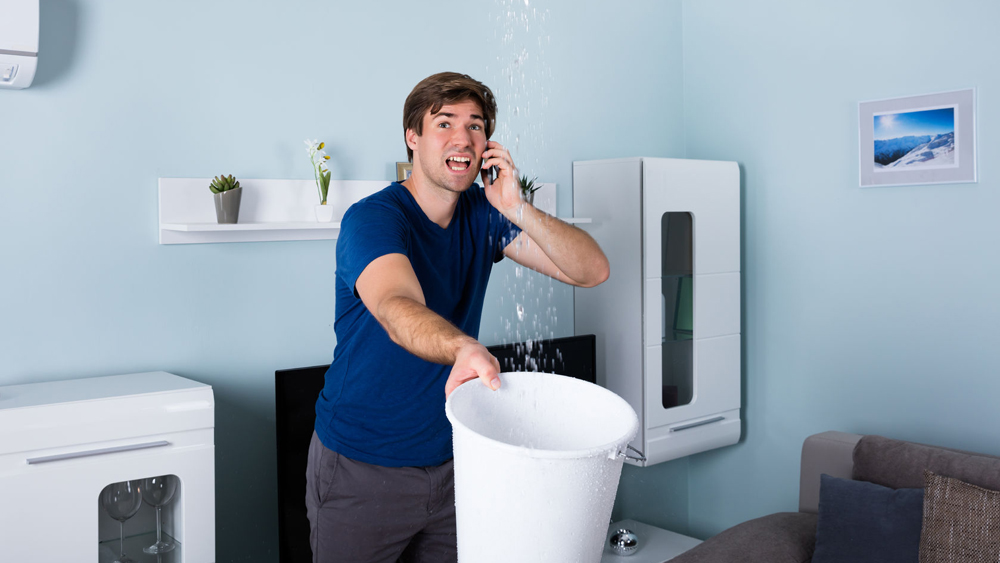We've discovered this post involving Top Causes of Home Water Leaks directly below on the net and believe it made good sense to share it with you over here.

Leaks not only trigger waste of water but can also create unnecessary damage to your house and also advertise unwanted organic development. By looking and also comprehending for daily scenarios that trigger leaks, you can secure your residence from future leakages and unneeded damages.
Instantaneous temperature changes.
Extreme temperature adjustments in our pipelines can cause them to increase and contract all of a sudden. This growth as well as contraction may create splits in the pipelines, specifically if the temperature level are below cold.
Corroded water supply
This may be the cause of discoloration or bending on your water pipelines. If our plumbing system is old, think about changing the pipes considering that they are at a higher risk of rust than the newer models.
Defective Pipe Joints
The factor at which your pipes connect is often the weakest web link in the waterline. Pipe joints can weaken over time, resulting in water leakages. The bulk of pipeline joints are not easily visible. If you have noisy pipes that make ticking or banging noises, especially when the hot water is turned on, your pipe joints are probably under a lot of stress. It is recommended to have your plumber inspect your system once a year.
Elbowing in origins
A lot of water leakages start outside the house rather than inside it. If you observe an abrupt reduction in water pressure, state in your faucet, take time to head out as well as analyze your lawn. You might observe damp patches or sinkholes in your backyard, which could imply that tree roots are invading water lines creating water to permeate out. You can have your plumber check for invasion, particularly if you have trees or shrubs near your property.
Poor Water Connectors
At times, a leak can be triggered by loosened hose pipes and also pipes that supply your appliances. In situation of a water links leakage, you might notice water running straight from the supply line or pools around your devices.
Obstructed Drains
Clogged drains pipes could be annoying and inconveniencing, but they can sometimes end up triggering an overflow leading to rupture pipelines. Keep getting rid of any type of materials that might decrease your drains pipes that can clog them to avoid such hassles.
All the above are sources of leakages however not all water leaks arise from plumbing leakages; some leakages may originate from roofing leaks. All leakages ought to be repaired promptly to stay clear of water damages.
Leaks not only create waste of water yet can additionally trigger unnecessary damage to your house and advertise undesirable organic growth. By looking as well as recognizing for everyday situations that trigger leakages, you can protect your house from future leakages and unnecessary damages. Today, we will certainly look at 6 leakage triggers that may be causing your pipelines to trickle.
At times, a leakage can be created by loosened hose pipes as well as pipelines that provide your devices. In case of a water connections leak, you might discover water running straight from the supply line or pools around your home appliances.
How To Check For Water Leak In Your Home
How To Check for Leaks
The average household's leaks can account for nearly 10,000 gallons of water wasted every year and ten percent of homes have leaks that waste 90 gallons or more per day. Common types of leaks found in the home are worn toilet flappers, dripping faucets, and other leaking valves. These types of leaks are often easy to fix, requiring only a few tools and hardware that can pay for themselves in water savings. Fixing easily corrected household water leaks can save homeowners about 10 percent on their water bills.
To check for leaks in your home, you first need to determine whether you're wasting water and then identify the source of the leak. Here are some tips for finding leaks:
Take a look at your water usage during a colder month, such as January or February. If a family of four exceeds 12,000 gallons per month, there are serious leaks.
Check your water meter before and after a two-hour period when no water is being used. If the meter changes at all, you probably have a leak.
Identify toilet leaks by placing a drop of food coloring in the toilet tank. If any color shows up in the bowl after 10 minutes, you have a leak. (Be sure to flush immediately after the experiment to avoid staining the tank.)
Examine faucet gaskets and pipe fittings for any water on the outside of the pipe to check for surface leaks.
Undetected water leaks can happen without the home or business owner even realizing. If you suspect a water leak, but not able to find the source. It is time to contact a professional water leak detection service, The Leak Doctor.
How To Find a Water Leak In Your Home
https://www.leakdoctor.com/blog/How-To-Check-For-Water-Leak-In-Your-Home_AE197.html

I'm certainly very intrigued by How to Find Water Leaks and I am praying you enjoyed our article. Do you know about somebody else who is excited by the topic? Do not hesitate to promote it. Thanks a bunch for your time. Don't hesitate to check our site back soon.
Book A Service Call